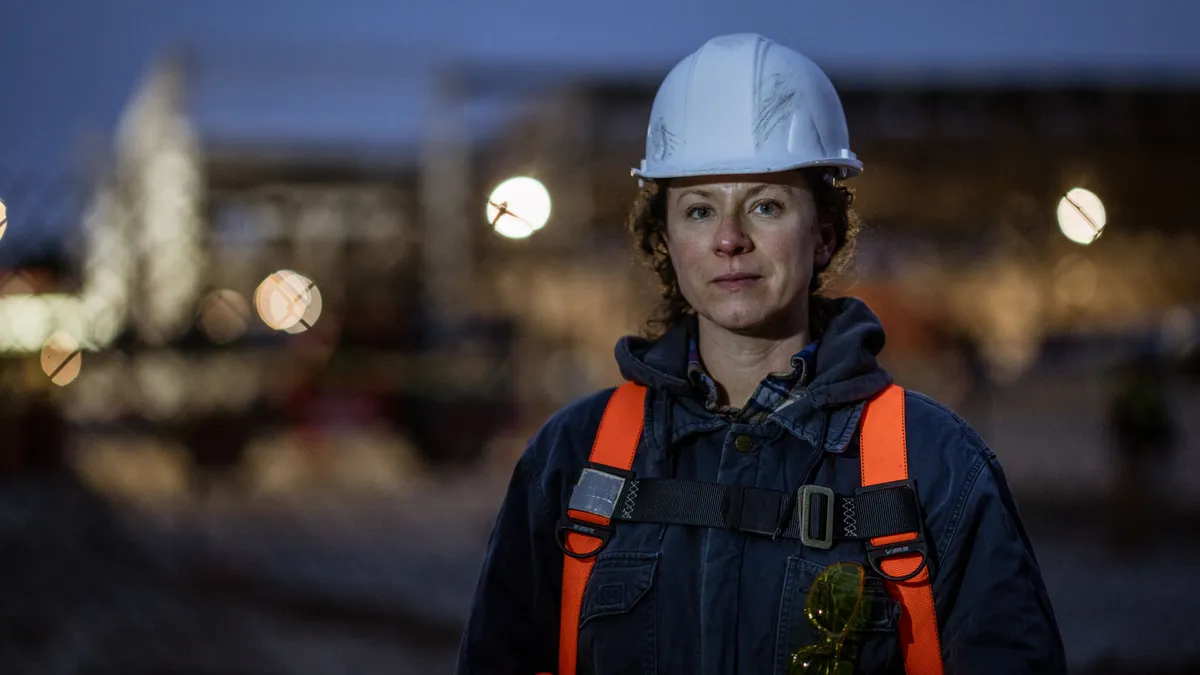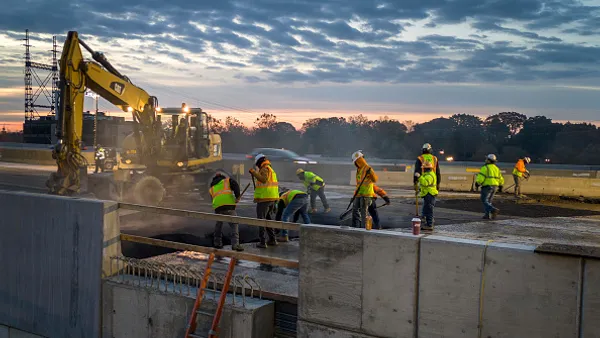Dive Brief:
- The U.S. Department of Justice announced that it has joined a whistleblower case against engineering and construction company AECOM, as well as certain recipients of Federal Emergency Management Agency (FEMA) disaster relief aid after 2005's Hurricane Katrina.
- According to attorneys for AECOM employee and whistleblower Robert Romero, AECOM knowingly submitted more than $100 million of false claims for several of its clients via inflated repair estimates and other false information. The lawsuit also says that those clients certified the information in the false claims, even though they knew it was not accurate.
- The DOJ also maintains that, as early as 2011, AECOM's management was aware of "systemic problems" that led to the false FEMA claims between 2007 and 2013 but did not notify the government.
Dive Insight:
Post-Katrina, FEMA provided schools and universities with funds for the repair or replacement of damaged facilities, limited to the amount required to restore them to their pre-disaster condition. The full cost of replacement was available only if repair estimates exceeded a defined threshold, according to a press statement from the Department of Justice.
AECOM received more than $300 million from FEMA between 2005 and 2019 as a technical assistance contractor in support of disaster response efforts on the Hurricane Katrina recovery. In this role, AECOM was responsible for conducting site evaluations and preparing and reviewing damage and repair estimates used to determine whether applicants were eligible for funds.
"In particular, AECOM and the applicants were responsible for providing FEMA with truthful and accurate information regarding each facility’s pre-disaster design and all damage resulting from Hurricane Katrina," the statement reads.
One of the recipients named in the lawsuit, Xavier University of Louisiana, has agreed to pay the United States $12 million to resolve its alleged role in the submission of false and misleading repair estimates prepared by AECOM on its behalf. According to the government’s allegations, Xavier improperly obtained funds for its gymnasium, student center and electrical grid that substantially exceeded the amounts it was entitled to receive under program rules.
As part of the settlement, Xavier has agreed to cooperate with the department’s investigation of other parties and any related litigation. Other parties named in the lawsuit for their role in submitting false estimates include the Catholic Archdiocese of New Orleans, Dillard University and several local public schools.
AECOM defended itself against the allegations in a statement to Construction Dive.
“It’s disappointing that 15 years after Hurricane Katrina, the federal government wants to claw back funds from educational institutions that endured so much damage from the impact of the storm. AECOM deployed immediately to New Orleans after the hurricane in 2005 and worked side by side with its residents and institutions to help rebuild the city and get students back into school. We are proud of our efforts and intend to vigorously defend our work, all of which was done under the guidance and supervision of the federal government.”
One of Romero's attorneys, Jeffrey Dickstein, partner at the law firm Phillips & Cohen, told Construction Dive that the fact the DOJ stepped in is "very significant" as the government is known for doing a thorough investigation and joins only one in five of such cases. Phillips & Cohen filed the lawsuit on behalf of Romero, a former AECOM project specialist, in 2016 under seal as required by law to give the government time to investigate. The court unsealed the complaint on June 3.
When asked what kind of procedures FEMA has in place to review and verify the accuracy of claims, Dickstein said that the agency relies on the accuracy of information submitted to it.
"The government relied on AECOM to accurately assess and evaluate damages the applicants suffered as a result of Hurricane Katrina and the aftermath as well as the costs to repair those damages," he said. "This reliance on contractors for honest information is true in all government contracting cases."
And the fact that Katrina occurred 15 years ago could be misleading to some who might think it's too late for the government to take action, he said.
"While Hurricane Katrina happened in 2005," Dickstein said, "federal disaster funds continued to pour into New Orleans beyond 2012. The fraud alleged in this case didn’t begin until long after Katrina and continued for many years."
The whistleblower provisions of the federal False Claims Act allowed Romero, as a private party, to file suit on the United States' behalf. The act also lets the U.S. intervene in such cases and allows for financial recovery by the private party filing suit. Romero received approximately $2.3 million, according to the DOJ, in the Xavier University settlement.













